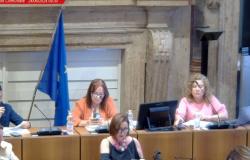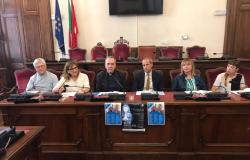Card. also spoke about differentiated autonomy. Matteo Zuppi at the Economics Festival in Trento
“The country will not grow unless together”. A position that the Italian Bishops have expressed since the immediate post-war period. If Italian unification in the second half of the 19th century had caused some problems, subsequently unity instead became a value. A unity which, moreover, must be expressed in a plural dimension, where local communities (not localisms) are also to be considered an indispensable resource and constitutive subject of the Republic.
On the partly controversial topic of differentiated autonomy, none other than the spoke a few days ago Permanent Episcopal Councilhaving collected and made “the concerns that emerged from the Italian Episcopate” during the work of the 79th General Assembly of the CEI.
A position that can also offer some food for thought to the autonomous territories par excellence, Trento and especially Bolzano.
The Bishops remember «the duty and will of the Church to be present and supportive in every part of Italy, to promote authentic development of the entire country». It is the history of the country, they write in the note, “that tells us that there is no development without solidarity, attention to the least, valorisation of differences and co-responsibility in promoting the common good”.
“In particular”, write the Bishops, “we believe that the word ‘together’ is the key to facing today’s challenges and the path that leads to a possible future for all. In fact, we are convinced – and history confirms it – that the principle of subsidiarity is inseparable from that of solidarity. Every time they split, the social fabric is impoverished, either because individual realities are promoted without asking them to commit to the common good, or because there is a risk of centralizing everything at state level without valorising the skills of individuals. Solidarity and subsidiarity must walk together otherwise a void will be created that is impossible to fill”.
“We have always cared about the well-being of every person, of communities, of the entire country,” continues the note, “while we are concerned about any attempt to accentuate the imbalances that already exist between territories, between metropolitan and internal areas, between centers and suburbs. In this sense, the bill which specifies the conditions for the activation of differentiated autonomy – provided for in Article 116, third paragraph, of the Constitution – risks undermining the foundations of that bond of solidarity between the different Regions, which is a safeguard for the principle of unity of the Republic”.
A risk that should not be underestimated, “particularly in light of the already existing inequalities”, also taking into account that the development of the system of autonomies is not at all foreign to the social doctrine of the Church. Far from it: its construction “with Luigi Sturzo, in the last century, was one of the main contributions of Catholics to the life of the country”. So?
The Bishops do not condemn differentiated autonomy as such – especially since it is foreseen by the Constitution – but invite us to work on a “social and cultural pact, so that mechanisms of development, control and social justice for each and every one are increased” .
Is the challenge taken up by the territories with the greatest autonomist tradition?
The President of South Tyrol (as well as President of the Region) Arno Kompatscherheard at the beginning of April by the Constitutional Affairs Committee of the Chamber, had said how autonomy can be instrument of economic and social development, in the interest of the Region and the autonomous Provinces but also of the country”.
“We are among the Regions that are net taxpayers, in the sense that our public spending is lower than our tax revenue and we leave something to the State. This demonstrates that the idea of autonomy is not in conflict with solidarity.” Autonomy must be combined with solidarity tools (“in this reform identified in the essential levels of performance”) and “a truly autonomous system, which leaves room for the regions, can also be a step forward in terms of social peace”.
Autonomy cannot be reduced to the possibility of doing as much as possible by oneself, nor can solidarity be limited to making what is leftover available to others.
There challenge – which would require a development of thought in particular on the part of those who have the greatest experience in the field of self-government – is overcoming the dichotomy between local interest and national interest in a perspective oriented towards the common good.






